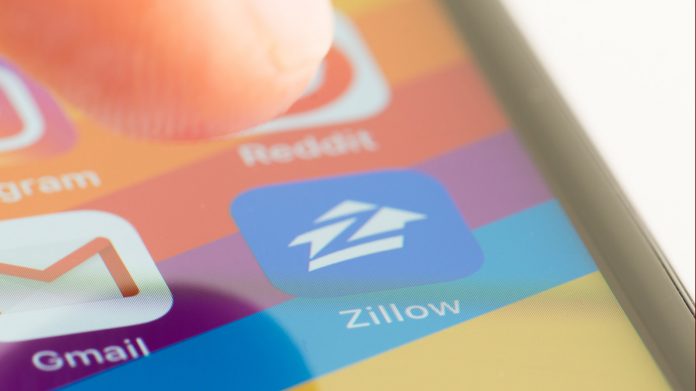Now that we’ve had a moment to digest Zillow’s latest news to both close down its iBuyingbusiness, Zillow Offers, and its invitation to investors to buy more than 7,000 homes for a “discount” of $7.2B, let’s take a more sober look at Zillow’s latest missteps.
READ: 2022 Top Agent Success Secrets [Revealed]: New FREE Real Estate Coaching Web Event, Revealing 17 Surprising Secrets Of The Top 100 $ Millionaire Agents. Get Your FREE Spot For The 2022 Real Estate Coaching Webinar Now. After You Have Attended This Event You Will Have A Huge Feeling Of Relief Knowing You Will FINALLY Laugh At Your Money Worries – You Will Have Your Own Personalized 2022 Step-By-Step Business Plan. Learn Now How To Generate 100’s of Motivated Leads for FREE, Without Coming Off As A Pushy Salesperson and Losing Your Soul. You Will Soon Know How To Become One of the 1000s of Agents Making HUGE Money Who Never Thought They Could. YES, I Want To Attend The FREE Webinar! <——Click To Register
Zillow From Its Beginnings
Richard Barton co-founded Zillow 16 years ago as a home listing website. Sellers could list their for-sale properties and buyers could peruse those listings if and when they wanted to buy. Zillow took off like hotcakes and soon became the go-to website for sellers to list and buyers to “look.”
Soon thereafter, Zillow’s website added a service called Zestimate that would help buyers and sellers estimate house values. Zillow also added an advertising mechanism for agents and brokers to both promote their property listings plus their specific professional backgrounds, expertise and services.
The more listings agents and brokers promoted on the Zillow website, the more money Zillow took in from agents. As time went on, Zillow put together an advertising program for agents and brokers called Premiere Agents, an eventual huge moneymaker for Zillow.
In fact, Zillow’s Premiere Agent program generates a whopping 80% of the company’s revenue and 100% of its consistent profits because agents like this advertising tool and love buying leads from Zillow.
Three years ago, Zillow added its transactional iBuying program, ZillowOffers. Barton was so excited about ZillowOffers that he came back to the company after leaving some years earlier to develop its transactional opportunities.
What’s Happening Now with Zillow?
Last week, Barton first announced that Zillow was offering 7,000 homes acquired by ZillowOffers to institutional investors for approximately +$7B. In the next couple of days, Barton then announced on Zillow’s Q3 earnings call with his investors, that Zillow was shutting down ZillowOffers altogether.
Barton pointed to the unpredictability in forecasting home prices in the current housing market, supply chain disruptions, labor shortages and said, “Our observed error rate (in pricing) has been far more volatile than we thought possible.” He also admitted that some of the homes purchased had been bought at “over market value” and “at times, sold…for a loss.”
Barton reported that Zillow had brought in $1.7B during Q3 2021 along with a net loss of -$328M, all related to the ZillowOffers section of the overall company. The day after this Q3 2021 earnings call, Zillow stock dropped from $100/share to $70/share. (As of November 8, Zillow’s stock price sits at $67.67/share.)
Now What for Zillow?
Zillow is now sitting on 18,000 houses it needs to sell, not 7,000 as stated in the company’s latest earnings call.
Zillow’s advertising platform still remains widely popular.
Zillow still offers its vision to give “more” to its users. Barton said in the Q3 earnings call that company’s “2.0” vision remains alive. Rather than buying houses outright Zillow would instead focus on programs that are “asset and cash-light.”
Zillow intends to “reduce” its workforce by -25%.
We don’t yet know whether or not Zillow intends to “fix” Zestimate, its more often than not highly criticized home valuation algorithm.
Here, we won’t go into what competitors and/or critics have had to say about Zillow’s missteps.
We will instead go into what Zillow happenings mean for you, real estate agents and brokers.
Wake-Up Call for Agents
Zillow’s missteps stem from company operatives believing their own press. In fact, they forgot what made the company.
Zillow began as a media company. It became a lead source company. It then broke its model by getting into the flipping business.
Now, agents, remember that the more profitable Zillow becomes in the short- and long-terms by getting out of the transactional flipping business, Zillow’s track record shows they will be able to invest in other programs that can potentially hurt agents.
In fact, Barton pre-Zillow ultimately bankrupted the travel agent industry when he headed up Expedia. Already, Zillow has pivoted to its new Premiere Agent Flex program which asks agents for even more money to pay a referral fee for the leads they get from Zillow. According to some industry experts, Zillow will continue looking for “faster, cheaper money-in-their-pocket options that could hurt both agents and consumers.”
Remember that if every agent stopped paying Zillow for their leads through the company’s Premiere Agent program, Zillow would go bankrupt.
The Big Picture for Agents
Just as Tim and Julie Harris of Real Estate Coaching advise over and over again, stop paying for leads…learn how to do your own lead generation!
We’ll give Gary Keller of Keller Williams the last word here. “Real estate agents are going to determine the fate of the industry with their dollar spend. If you write a check to Zillow, you’re voting for a Zillow world.”
Thanks to Bloomberg, The New York Times, Inman, and HousingWire.

























